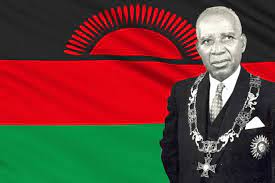Prevailing Culture Of Romance Scam! By Fadumo Paul
The internet has made it easy for people to connect by eliminating the effect of distance. It helps people in a long-distance relationship stay in touch; it also enhances business transaction both local and internationally. It has made it easy to build a friendship with people we otherwise won’t have been able to.
It is sad and unfortunate that some individuals and groups of people are also using the internet to harm others across the world. Just because it is easy to hide behind a computer keyboard and or smartphone – pretending to be someone else or profess fake affection does not obliterate the fact that real pain is inflicted on other human beings.
Romance scam (part of wire fraud) activities originating from West Africa are allegedly prevalent, according to findings reported by various news media outlets across the world, Nigerians and Ghanaians seem to be the main perpetrators. These scammers use false social media profiles to spy on their potential victims and then befriend them with the sole purpose of defrauding them. Forbes reported that online romance scams cost Americans millions of dollars every year, and the majority of the perpetrators are Nigerians – as we have the highest number of smartphones in Africa.
The saddest part of it is that most of the victims have developed an emotional connection with their scammers – thinking that they’ve found life partners. These victims are not only losing money and other valuables, but the sudden realization will lead to emotional pain.
In May 2019, Nigeria’s anti-corruption agency, the Economic and Financial Crimes Commission (EFCC), raided a “Yahoo Yahoo training school” in Lagos, arrested the proprietor, and eight students who were allegedly being taught skills to carry out cyber fraud. (BBC Africa)
It is important to draw the attention of the Nigerian public to this menace and the need to take responsibility as a society. Socialization is the process of teaching, learning and internalizing societal norms and ideologies, and since these fraudsters are part of us, there has to be something molding them into scammers.
Here are some questions to ponder on: 1. How did we get to the point where we have many people willing to commit internet fraud and inflict pain on people that they don’t know without care? 2. Could it be because our society NOW references people who have money or wealth (regardless of its source)? 3. Or is it the failure of Nigeria’s socio-economic system and scarce opportunities? 4. Who are the role models to these young criminals? Finally, can we count on Nigeria’s law enforcement agencies like the #NGPolice to do their job effectively?
Nigerian Hush-Daddies (i.e., corrupt political office holders and their allies in the private sector) who are often daring and unhesitant to display their questionable opulence to make the masses feel their poorness. We probably should look at them in trying to identify who/what is influencing fraudulent activities among young Nigerians.
It is being generalized that Nigerians are famous for internet fraud, which is seriously harmful in many ways. The long term impact of this generalization is that it has ruined innumerable opportunities for many honest Nigerians both at home and abroad (including the unborn), and this will continue unless we find ways to stop or at least minimize it. It is already ruining our image globally; small businesses based in Nigeria may find it more difficult at a time of global economic struggle like this to transact and or compete effectively online due to the declining/lack of trust. Small businesses thrive on trust. Nigerians in the diaspora are facing difficult circumstances where they have to continue to prove themselves worthy of trust – unnecessarily.
Our society needs to become one which honours honesty, shun get-rich-quick schemes, shame known scammers, whistleblow on them. Our government needs to find new ways to encourage hard work and perseverance, as well as to reward intelligence and ingenuity.
#StopRomanceScam
©FadumoPaul.





